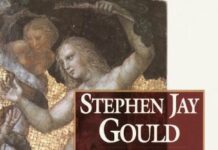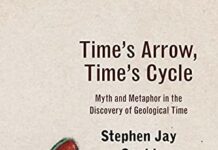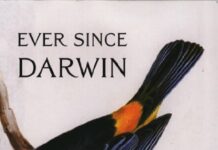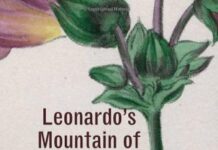
Ebook Info
- Published: 2011
- Number of pages: 432 pages
- Format: PDF
- File Size: 8.33 MB
- Authors: Stephen Jay Gould
Description
Gould’s final essay collection is based on his remarkable series for Natural History magazine―exactly 300 consecutive essays, with never a month missed, published from 1974 to 2001. Both an intellectually thrilling journey into the nature of scientific discovery and the most personal book he ever published.
User’s Reviews
Editorial Reviews: Review “These essays have entranced millions, from company presidents to penitentiary inmates, with the wonders of evolution…One of the joys of reading about good science is the chance not only to observe how scientific theory works, but also to participate in the workings of the mind behind the works. In Gould’s I Have Landed…the reader will find such joy in abundance.”―Tim Flannery, New York Review of Books From the Inside Flap Here is bestselling scientist Stephen Jay Gould’s tenth and final collection based on his remarkable series for Natural History magazine–exactly 300 consecutive essays, with never a month missed, published from 1974 to 2001. Both an intellectually thrilling journey into the nature of scientific discovery and the most personal book he has ever published, I Have Landed marks the end of a significant chapter in the career of one of the most acclaimed and widely read scientists of our time. Gould writes about the themes that have defined his career, which his readers have come to expect and celebrate, casting new light upon them and conveying the ideas that science professionals exchange among themselves (minus the technical jargon). Here, of course, is Charles Darwin, from his centrality to any sound scientific education to little-known facts about his life. Gould touches on subjects as far-reaching and disparate as feathered dinosaurs, the scourge of syphilis and the frustration of the man who identified it, and Freud’s “evolutionary fantasy.” He writes brilliantly of Nabokov’s delicately crafted drawings of butterflies and the true meaning of biological diversity. And in the poignant title essay, he details his grandfather’s journey from Hungary to America, where he arrived on September 11, 1901. It is from his grandfather’s journal entry of that day, stating simply “I have landed,” that the book’s title was drawn. This landing occurred 100 years to the day before our greatest recent tragedy, also explored, but with optimism, in the concluding section of the book. Presented in eight parts, I Have Landed begins with a remembrance of a moment of wonder from childhood. In Part II, Gould explains that humanistic disciplines are not antithetical to theoretical or applied sciences. Rather, they often share a commonality of method and motivation, with great potential to enhance the achievements of each other, an assertion perfectly supported by essays on such notables as Nabokov and Frederic Church. Part III contains what no Gould collection would be complete without: his always compelling “mini intellectual biographies,” which render each subject and his work deserving of reevaluation and renewed significance. In this collection of figures compelling and strange, Gould exercises one of his greatest strengths, the ability to reveal a significant scientific concept through a finely crafted and sympathetic portrait of the person behind the science. Turning his pen to three key figures–Sigmund Freud, Isabelle Duncan, and E. Ray Lankester, the latter an unlikely attendee of the funeral of Karl Marx–he highlights the effect of the Darwinian revolution and its resonance on their lives and work. Part IV encourages the reader–through what Gould calls “intellectual paleontology”–to consider scientific theories of the sixteenth and seventeenth centuries in a new light and to recognize the limitations our own place in history may impose on our understanding of those ideas. Part V explores the op-ed genre and includes two essays with differing linguistic formats, which address the continual tug-of-war between the study of evolution and creationism. In subsequent essays, in true Gould fashion, we are treated to moments of good humor, especially when he leads us to topics that bring him obvious delight, such as Dorothy Sayers novels and his enduring love ofbaseball and all its dramas. There is an ardent admiration of the topsy-turvy world of Gilbert and Sullivan (wonderfully demonstrated in the jacket illustration), who are not above inclusion in all things evolutionary. This is truly Gould’s most personal work to date. How fitting that this final collection should be his most revealing and, in content, the one that reflects most clearly the complexity, breadth of knowledge, and optimism that characterize Gould himself. I Have Landed succeeds in reinforcing Gould’s underlying and constant theme from the series’ commencement thirty years ago–the study of our own scientific, intellectual, and emotional evolution–bringing reader and author alike to what can only be described as a brilliantly written and very natural conclusion. “From the Hardcover edition. About the Author Stephen Jay Gould was Alexander Agassiz Professor of Zoology at Harvard University and Vincent Astor Visiting Professor of Biology at New York University. A MacArthur Prize Fellow, he received innumerable honors and awards and wrote many books, including Ontogeny and Phylogeny and Time’s Arrow, Time’s Cycle (both from Harvard). Read more
Reviews from Amazon users which were colected at the time this book was published on the website:
⭐Stephen Jay Gould (1941-2002) wrote many other important books, such as
⭐,
⭐,
⭐,
⭐,
⭐,
⭐,
⭐, etc. [NOTE: page numbers refer to the 418-page hardcover edition.]He wrote in the Preface to this 2002 book, “In 1977, and quite by accident, my first volume of essays in ‘Natural History’ for general readers (
⭐) appeared at the same time as my first technical book for professional colleagues in evolutionary theory (
⭐). The New York Times, viewing this conjunction as highly unusual… featured me in their Book Review… and I cannot deny that this article helped to propel a career then mired in infancy… (The technical book… had been delayed for more than a year…) Now, exactly twenty-five years later (…I failed to finish the technical book in time for an intended and truly millennial appearance in 2000 or 2001… this tenth and last volume of essays for general readers … also appears at the same time as the technical ‘life work’ of my mature years, twenty years in the making…
⭐… I no longer view this conjunction of technical and ‘popular’ as anomalous, or even as interesting… Thus, when I realized that my three-hundredth monthly essay for ‘Natural History’ … would fall fortuitously into the millennial issue of January 2001… I did choose to read this coincidence … as a sign that this particular forum should now close at the equally portentous number of ten volumes…” (Pg. 1-3)He adds, “I cannot begin to express the constant joy that writing these essays has brought me… Each has taught me something new and important, and each has given me human contact with readers who expressed a complete range of opinions from calumny to adulation, but always with feeling and without neutrality—so God bless them, every one… although I have frequently advanced wrong, or even stupid, arguments (in the light of later discoveries), at least I have never been lazy, and have never betrayed your trust by cutting corners or relying on superficial secondary sources…. Moreover, because I refuse to treat these essays as lesser, derivative, or dumbed-down versions of technical or scholarly writing… but insist on viewing them as no different in conceptual depth… from other genres of original research, I have not hesitated to present, in this format, genuine discoveries… that would conventionally make their first appearance in a technical journal for professionals… I have often been frustrated by … some… overly parochial scholars who will not cite my essays (while they happily quote my technical articles) because the content did not see its first published light of day in a traditional, peer-reviewed publication for credentialed scholars. Yet I have frequently placed into these essays original findings that I regard as more important… than several items that I initially published in conventional scholarly journals.” (Pg. 6-7)He points out, “Marx did admire Darwin, and he did send an autographed copy of
⭐to the great naturalist. Darwin, in the only recorded contact between the two men, sent a short, polite, and basically contentless letter of thanks. We do know that Darwin … never spent much time with Marx’s magnum opus. All but the first 105 pages in Darwin’s copy of Marx’s 822-page book remain uncut… and Darwin, contrary to his custom when reading books carefully, made no marginal annotations. In fact, we have no evidence that Darwin ever read a word of Das Kapital.” (Pg. 123)He argues, “Recapitulation must provide the primary warrant for Freud’s fantasy, for recapitulation allowe Freud to interpret a normal feature of childhood… as necessarily representing an adult phase of our evolutionary past… Conventional Darwinism could not provide such a mechanism in this case—and Freud understood that his fantasy demanded allegiance to a different version of heredity… Freud, therefore, held firmly to his second biological linchpin—the Lamarckian idea, then already unfashionable but still advocated by some prominent biologists, that acquired characters will be inherited. Under Lamarckism, all theoretical problems for Freud’s mechanism disappear.” (Pg. 155)He observes, “Although the word ‘evolution’ does not appear in the first edition of the
⭐, Darwin does use the verbal form ‘evolved’—clearly in the vernacular sense and in an especially prominent spot: as the very last word of the book! Most students have failed to appreciate the incisive and intended ‘gotcha’ of these closing lines, which have generally been read as a pietic reverie, a harmless linguistic flourish essentially devoid of content, however rich in imagery. In fact, the canny Darwin used this maximally effective location to make a telling point about the absolute glory and comparative importance of natural history as a calling… But Darwin would not have described the PROCESS regulated by his mechanism of natural selection as ‘evolution’ … For the mechanism of natural selection only yields increasing adaptation to changing local environments… We must … ask how ‘evolution’ achieved its coup in becoming the name for Darwin’s process—a takeover so complete that the word has now almost … lost its original English meaning… and has transmuted… into an effective synonym for biological change over time.” (Pg. 243-245)Besides being a highly creative evolutionary theorist, Gould was also a brilliant writer and an engaged “public intellectual.” His presence is sorely missed on the scientific and literary scene.
⭐Stephen Jay Gould (1941-2002) wrote many other important books, such as
⭐,
⭐,
⭐,
⭐,
⭐,
⭐,
⭐, etc. [NOTE: page numbers refer to the 418-page hardcover edition.]He wrote in the Preface to this 2002 book, “In 1977, and quite by accident, my first volume of essays in ‘Natural History’ for general readers (
⭐) appeared at the same time as my first technical book for professional colleagues in evolutionary theory (
⭐). The New York Times, viewing this conjunction as highly unusual… featured me in their Book Review… and I cannot deny that this article helped to propel a career then mired in infancy… (The technical book… had been delayed for more than a year…) Now, exactly twenty-five years later (…I failed to finish the technical book in time for an intended and truly millennial appearance in 2000 or 2001… this tenth and last volume of essays for general readers … also appears at the same time as the technical ‘life work’ of my mature years, twenty years in the making…
⭐… I no longer view this conjunction of technical and ‘popular’ as anomalous, or even as interesting… Thus, when I realized that my three-hundredth monthly essay for ‘Natural History’ … would fall fortuitously into the millennial issue of January 2001… I did choose to read this coincidence … as a sign that this particular forum should now close at the equally portentous number of ten volumes…” (Pg. 1-3)He adds, “I cannot begin to express the constant joy that writing these essays has brought me… Each has taught me something new and important, and each has given me human contact with readers who expressed a complete range of opinions from calumny to adulation, but always with feeling and without neutrality—so God bless them, every one… although I have frequently advanced wrong, or even stupid, arguments (in the light of later discoveries), at least I have never been lazy, and have never betrayed your trust by cutting corners or relying on superficial secondary sources…. Moreover, because I refuse to treat these essays as lesser, derivative, or dumbed-down versions of technical or scholarly writing… but insist on viewing them as no different in conceptual depth… from other genres of original research, I have not hesitated to present, in this format, genuine discoveries… that would conventionally make their first appearance in a technical journal for professionals… I have often been frustrated by … some… overly parochial scholars who will not cite my essays (while they happily quote my technical articles) because the content did not see its first published light of day in a traditional, peer-reviewed publication for credentialed scholars. Yet I have frequently placed into these essays original findings that I regard as more important… than several items that I initially published in conventional scholarly journals.” (Pg. 6-7)He points out, “Marx did admire Darwin, and he did send an autographed copy of
⭐to the great naturalist. Darwin, in the only recorded contact between the two men, sent a short, polite, and basically contentless letter of thanks. We do know that Darwin … never spent much time with Marx’s magnum opus. All but the first 105 pages in Darwin’s copy of Marx’s 822-page book remain uncut… and Darwin, contrary to his custom when reading books carefully, made no marginal annotations. In fact, we have no evidence that Darwin ever read a word of Das Kapital.” (Pg. 123)He argues, “Recapitulation must provide the primary warrant for Freud’s fantasy, for recapitulation allowe Freud to interpret a normal feature of childhood… as necessarily representing an adult phase of our evolutionary past… Conventional Darwinism could not provide such a mechanism in this case—and Freud understood that his fantasy demanded allegiance to a different version of heredity… Freud, therefore, held firmly to his second biological linchpin—the Lamarckian idea, then already unfashionable but still advocated by some prominent biologists, that acquired characters will be inherited. Under Lamarckism, all theoretical problems for Freud’s mechanism disappear.” (Pg. 155)He observes, “Although the word ‘evolution’ does not appear in the first edition of the
⭐, Darwin does use the verbal form ‘evolved’—clearly in the vernacular sense and in an especially prominent spot: as the very last word of the book! Most students have failed to appreciate the incisive and intended ‘gotcha’ of these closing lines, which have generally been read as a pietic reverie, a harmless linguistic flourish essentially devoid of content, however rich in imagery. In fact, the canny Darwin used this maximally effective location to make a telling point about the absolute glory and comparative importance of natural history as a calling… But Darwin would not have described the PROCESS regulated by his mechanism of natural selection as ‘evolution’ … For the mechanism of natural selection only yields increasing adaptation to changing local environments… We must … ask how ‘evolution’ achieved its coup in becoming the name for Darwin’s process—a takeover so complete that the word has now almost … lost its original English meaning… and has transmuted… into an effective synonym for biological change over time.” (Pg. 243-245)Besides being a highly creative evolutionary theorist, Gould was also a brilliant writer and an engaged “public intellectual.” His presence is sorely missed on the scientific and literary scene.
⭐Excellent product
⭐Ho letto tutti i libri di Gould tradotti in italiano, tutti bellissimi. Questo è suo ultimo ed è una raccolta di saggi pubblicati in varie riviste e giornali. Alcuni sono interessanti, altri un poco banali, alcuni si ripetono per argomento trattato. Come non ultimo difetto ho trovato sterile il tentativo, da parte di un evoluzionista convinto e convincente come Gould, di presentare analisi storiche ed evidenze scientifiche nel pervicace tentativo di sconfessare la Bibbia, che secondo me si sconfessa da sola. Mi è parso che Gould avesse bisogno di essere convinto lui stesso per primo che il libro sacro della sua famiglia ebrea null’altro fosse che una raccolta di storielle scritte da uomini che ignoravano tutte le spiegazioni scientifiche sull’origine della vita, dei fenomeni e dell’universo a cui noi, per fortuna, anzi grazie ad uomini come lui, possiamo oggi accedere.
⭐
⭐Ótimo livro de divulgação científica. Vale a pena!!!
⭐
Keywords
Free Download I Have Landed: The End of a Beginning in Natural History in PDF format
I Have Landed: The End of a Beginning in Natural History PDF Free Download
Download I Have Landed: The End of a Beginning in Natural History 2011 PDF Free
I Have Landed: The End of a Beginning in Natural History 2011 PDF Free Download
Download I Have Landed: The End of a Beginning in Natural History PDF
Free Download Ebook I Have Landed: The End of a Beginning in Natural History





